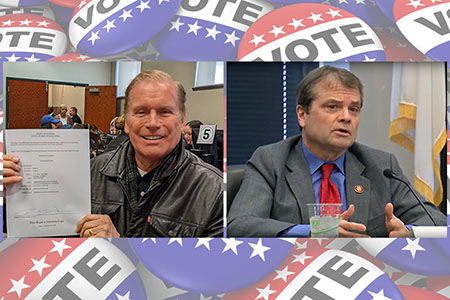
A lot of money is being paid in refunds but many homeowners are missing exemptions for which they qualify. Now is the time to review the exemptions outlined in your real estate tax bill and potentially reduce your bill by hundreds of dollars.
Apr. 4, 2023 – Although the first installment of the 2022 real estate tax bill was only recently due, on April 3, more than 53,000 Chicago and Cook County property owners are being handed upwards of $47 million in refunds this year. Why? Cook County Treasurer Maria Pappas determined that they overpaid their taxes last year for the 2021 tax bill. Most of the refunds are going to homeowners who are receiving property tax exemptions. Taxpayers can see the exemptions and the dollars saved on the second installment of the bill, due December 30, 2022. However, for the 2021 bill, the exemptions were missed for many homeowners.
Pappas launched the automatic refund program in July 2018. Since then, more than 174,000 property owners have received about $129 million in refunds without having to fill out an application. Here is a breakdown of some of the refunds: • A total of 16,629 homeowners who paid their taxes online will see $14.8 million electronically deposited into their bank or credit card accounts. • A whopping 22,241 property owners who paid their taxes through a bank/mortgage escrow account will be mailed refund checks totaling $14.8 million. • Some 14,137 homeowners who paid a total of $17.4 million in taxes via cash or check will receive an electronic refund or will be mailed a refund application to ensure the proper party receives the money.
Great advice, but many hard-working homeowners apparently are too busy. They don’t look at their tax bill or go online to check their exemptions and often miss the hefty financial rewards. All a property owner has to do is visit the Cook County Assessor’s website at www.cookcountyassessor.com. Type in your PIN (property index number), acknowledge you are not a robot, and when the property data pops up, click on exemptions to learn the history of the home. Hundreds of smart homeowners are beginning to wake up and smell the coffee. Take the owner of a modest frame bungalow in Jefferson Township with an estimated market value of $220,000, and a total 2021 tax bill of $4,427. Although the 3-bed/1-bath home is owner-occupied, the Assessor’s website shows zero Homeowner Exemptions listed for the years 2018, 2019, 2020, and 2021. The alert owner filed the paperwork and within weeks, received four tax refund checks totaling more than $3,051 for the lost exemptions.
Although the condo is currently listed for sale, the owner now is filing the paperwork for his four years of lost Homeowner Exemptions, which could provide a total tax refund of $3,000 to $4,000. The condo association board hired a series of tax appeal lawyers between 2009 and 2021 to fight rising assessments and property taxes on the building. Curiously, assessed values were not adjusted by the Assessor or Board of Appeals, and the attorneys never checked to see if the individual owners received their property Homeowner Exemptions. How tax exemptions work The property tax bill is determined by four factors: the assessment, the equalization factor or “multiplier,” the tax rate, and the exemptions, explained Griffin. The equalization factor/multiplier is established each year for Cook County to bring property tax assessments in line with other parts of Illinois. The factor is determined by the Illinois Department of Revenue. The three primary exemptions are Homeowner Exemption, Senior Exemption, and Senior Freeze. The Homeowner Exemption recently was increased to $10,000 from $7,000, and the Senior Exemption was hiked to $8,000 from $5,000. Those exemption amounts are deducted from the tax bill. Also, more seniors can qualify for the Senior Freeze because the Illinois General Assembly recently increased the maximum annual income to receive the freeze to less than $65,000 from less than $55,000. “Every homeowner should review their tax bill to see if they received the proper exemptions, and contact the Assessor if the exemptions are incorrect,” Griffin advised.
The 2021 tax rate in Chicago eased to 6.723 percent per $100 of assessed valuation from 6.911 percent a year earlier. And the 2021 state equalization factor, designed to make assessments uniform statewide, declined to 3.0027 percent per $100 of assessed valuation from 3.2234 percent a year earlier. The main engine that drives up property tax bills is the amount of money spent by local government. For example, homeowners who read their 2021 tax bills will see the continued increased spending for schools and police, firefighter, and teacher pensions. Property owners who think they are over-assessed should appeal now, Griffin advises. Visit the Cook County Assessor’s website to find comparable properties or start the appeal process. The Assessor is now working through the appeals process for 2022 where the North Suburbs are being re-assessed. A taxpayer can file with the Cook County Board of Review and later with the Illinois Property Tax Appeals Board. Or call Michael Griffin, an expert tax assessment lawyer. |

















